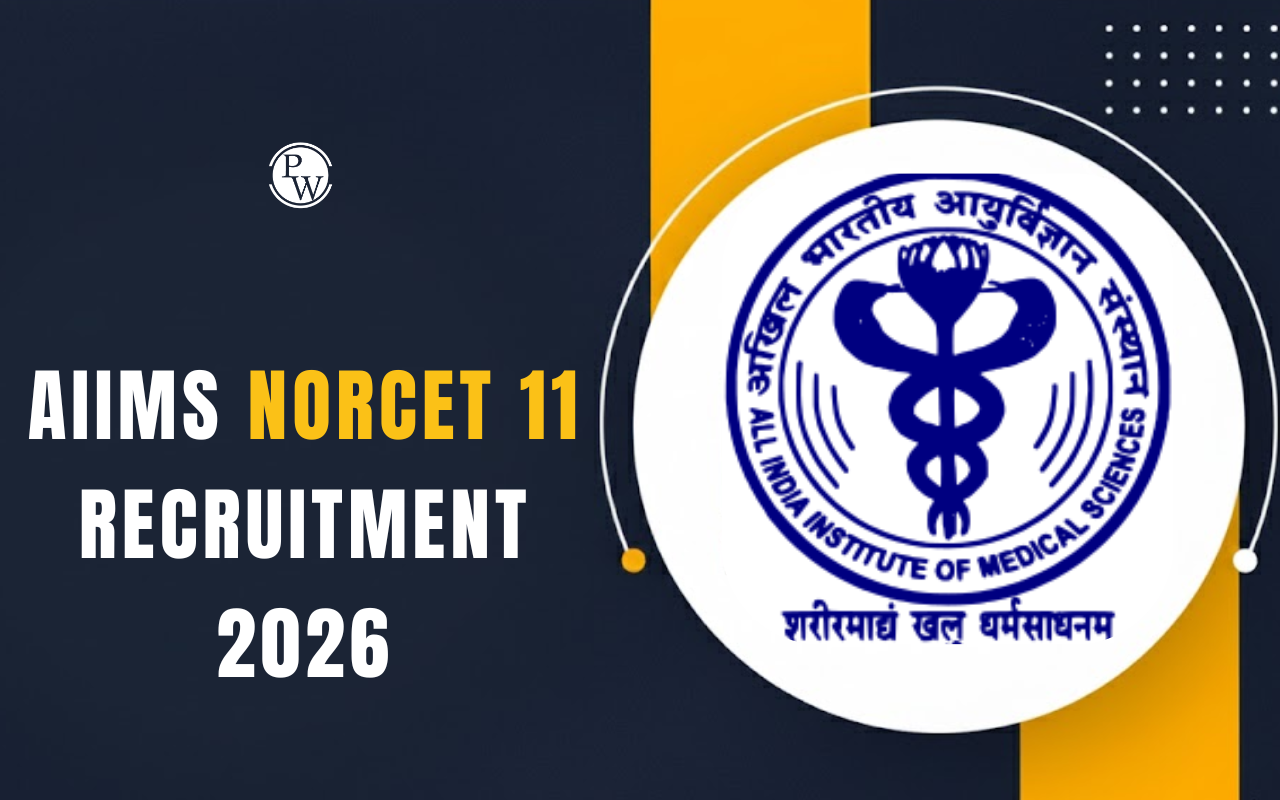
After GNM which Course is Best? : Completing a General Nursing and Midwifery (GNM) diploma opens up numerous opportunities for further education and specialization. As the healthcare industry evolves, so do the demands for skilled professionals in various fields. For GNM graduates, selecting the right course after completing their diploma can enhance their career prospects, increase their earning potential, and provide opportunities for specialization. In this article, we will explore various options available after GNM, including the benefits of each course, and help you make an informed decision about your future.
Courses After GNM
After completing a GNM diploma, nurses have several avenues to explore for further education. The decision often depends on personal interests, career goals, and market demand. Here’s a breakdown of popular courses and their benefits.| Course | Duration | Eligibility | Key Benefits |
|---|---|---|---|
| Bachelor of Science in Nursing (B.Sc Nursing) | 2-3 years | GNM Diploma | Higher salary, advanced roles, broader scope of practice |
| Post Basic B.Sc Nursing | 2 years | GNM Diploma | Specialized training, opportunities for teaching and research |
| Specialization in Nursing (M.Sc Nursing) | 2 years | B.Sc Nursing | Expertise in specific fields, research opportunities |
| Nursing Administration | 1-2 years | B.Sc Nursing | Leadership roles, management positions |
| Nursing Educator Course | 1 year | GNM Diploma/B.Sc | Teaching roles in nursing schools, shaping future nurses |
| Public Health Nursing | 1-2 years | GNM Diploma | Focus on community health, opportunities in NGOs |
| Clinical Research | 6 months - 1 year | GNM Diploma/B.Sc | Involvement in medical research, higher earning potential |
| Certificate in Critical Care Nursing | 6 months | GNM Diploma/B.Sc | Specialized skills in critical care settings |
| Master of Health Administration (MHA) | 2 years | B.Sc Nursing | Management roles in healthcare settings |
Bachelor of Science in Nursing (B.Sc Nursing)
One of the most popular paths after GNM is pursuing a Bachelor of Science in Nursing (B.Sc Nursing). This course typically lasts 2 to 3 years and provides a comprehensive education in nursing practices, theories, and research.| Benefit | Description |
|---|---|
| Higher Salary | B.Sc nurses usually earn more than GNM graduates due to their advanced qualifications. |
| Broader Scope | They have opportunities to work in specialized areas like pediatrics, geriatrics, and mental health. |
| Career Advancement | B.Sc Nursing opens doors to managerial roles, teaching positions, and research opportunities. |
Post Basic B.Sc Nursing
This course is specifically designed for GNM graduates and is a step toward higher education. It usually takes about 2 years to complete.| Benefit | Description |
|---|---|
| Specialized Training | Post Basic B.Sc Nursing provides an advanced understanding of nursing concepts. |
| Teaching and Research Opportunities | Graduates can pursue careers in nursing education or research. |
Specialization in Nursing (M.Sc Nursing)
For those looking to delve deeper into a specific area of nursing, a Master of Science in Nursing (M.Sc Nursing) is an excellent choice. This course typically lasts 2 years and requires a B.Sc Nursing degree for admission.| Benefit | Description |
|---|---|
| Expertise in Specific Fields | Areas of specialization can include community health, mental health, and surgical nursing. |
| Research Opportunities | Graduates can engage in significant research projects, contributing to advancements in nursing. |
Nursing Administration
This course focuses on the management aspect of healthcare and is suitable for those aspiring to take on leadership roles. It typically lasts between 1 to 2 years and requires a B.Sc Nursing degree.| Benefit | Description |
|---|---|
| Leadership Roles | Prepares graduates for management positions in hospitals and healthcare organizations. |
| Understanding of Healthcare Policies | Equips nurses with knowledge of healthcare policies and regulations. |
Nursing Educator Course
For those passionate about teaching, the Nursing Educator course offers a pathway to becoming a nursing instructor. This course lasts about a year and is open to GNM and B.Sc Nursing graduates.| Benefit | Description |
|---|---|
| Teaching Roles | Allows graduates to train and mentor future nurses. |
| Curriculum Development | Graduates can contribute to developing nursing curricula. |
Public Health Nursing
This course focuses on community health and is suitable for nurses interested in working in public health sectors. The duration is around 1 to 2 years and requires a GNM diploma.| Benefit | Description |
|---|---|
| Community Impact | Nurses play a crucial role in improving community health. |
| Work in NGOs | Opportunities to work with non-governmental organizations in community development projects. |
Clinical Research
This field involves working on clinical trials and research studies. The duration of the course ranges from 6 months to 1 year and is open to GNM and B.Sc Nursing graduates.| Benefit | Description |
|---|---|
| Research Skills | Develops skills in conducting research and data analysis. |
| Higher Earning Potential | Clinical researchers often earn competitive salaries. |
Certificate in Critical Care Nursing
This specialized course focuses on nursing care in critical care settings. It typically lasts around 6 months and is available to GNM and B.Sc Nursing graduates.| Benefit | Description |
|---|---|
| Specialized Skills | Nurses gain expertise in critical care, enhancing their employability. |
| High Demand | Critical care nurses are in high demand in hospitals and emergency units. |
Master of Health Administration (MHA)
For those interested in healthcare management, the Master of Health Administration (MHA) is a suitable option. This course lasts about 2 years and requires a B.Sc Nursing degree.| Benefit | Description |
|---|---|
| Management Roles | Prepares graduates for high-level management positions in healthcare organizations. |
| Strategic Planning Skills | Equips nurses with the skills necessary for strategic decision-making. |
After GNM which Course is Best? FAQs
What is the best course to pursue after completing GNM?
The most popular course after GNM is B.Sc Nursing, which offers higher salaries, broader scope, and advanced roles in healthcare.
How does Post Basic B.Sc Nursing benefit GNM graduates?
Post Basic B.Sc Nursing provides specialized training, preparing GNM graduates for teaching roles and opportunities in nursing research.
What is the duration of M.Sc Nursing, and what are its key benefits?
M.Sc Nursing is a 2-year course that allows nurses to specialize in fields like community health or surgical nursing, offering research and advanced clinical roles.
Can GNM graduates pursue a career in healthcare management?
Yes, GNM graduates can pursue a Master of Health Administration (MHA) for leadership roles in healthcare management, focusing on strategic decision-making.
What are the benefits of pursuing a Certificate in Critical Care Nursing?
This course equips nurses with specialized skills in critical care, which is in high demand in hospitals, offering better job prospects and salary.
🔥 Trending Blogs
Talk to a counsellorHave doubts? Our support team will be happy to assist you!

Check out these Related Articles
Free Learning Resources
PW Books
Notes (Class 10-12)
PW Study Materials
Notes (Class 6-9)
Ncert Solutions
Govt Exams
Class 6th to 12th Online Courses
Govt Job Exams Courses
UPSC Coaching
Defence Exam Coaching
Gate Exam Coaching
Other Exams
Know about Physics Wallah
Physics Wallah is an Indian edtech platform that provides accessible & comprehensive learning experiences to students from Class 6th to postgraduate level. We also provide extensive NCERT solutions, sample paper, NEET, JEE Mains, BITSAT previous year papers & more such resources to students. Physics Wallah also caters to over 3.5 million registered students and over 78 lakh+ Youtube subscribers with 4.8 rating on its app.
We Stand Out because
We provide students with intensive courses with India’s qualified & experienced faculties & mentors. PW strives to make the learning experience comprehensive and accessible for students of all sections of society. We believe in empowering every single student who couldn't dream of a good career in engineering and medical field earlier.
Our Key Focus Areas
Physics Wallah's main focus is to make the learning experience as economical as possible for all students. With our affordable courses like Lakshya, Udaan and Arjuna and many others, we have been able to provide a platform for lakhs of aspirants. From providing Chemistry, Maths, Physics formula to giving e-books of eminent authors like RD Sharma, RS Aggarwal and Lakhmir Singh, PW focuses on every single student's need for preparation.
What Makes Us Different
Physics Wallah strives to develop a comprehensive pedagogical structure for students, where they get a state-of-the-art learning experience with study material and resources. Apart from catering students preparing for JEE Mains and NEET, PW also provides study material for each state board like Uttar Pradesh, Bihar, and others
Copyright © 2026 Physicswallah Limited All rights reserved.









